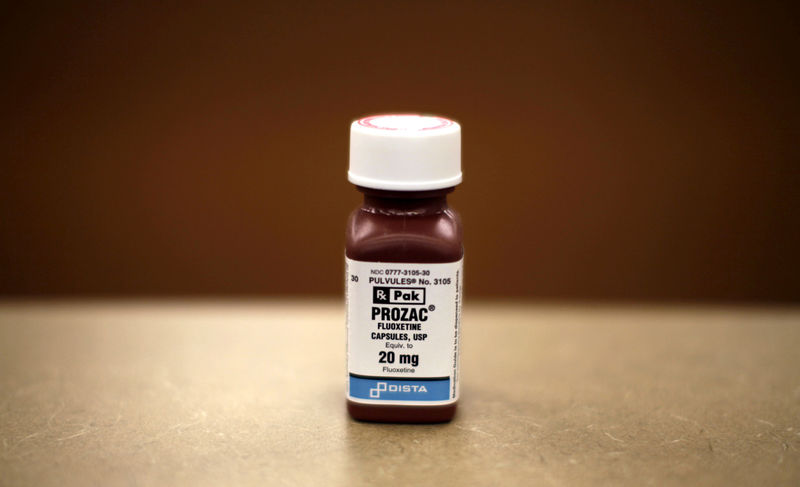Stock market today: S&P 500 hits fresh record close on stronger economic growth
INDIANAPOLIS - Eli Lilly and Company (NYSE: LLY), a prominent player in the pharmaceuticals industry with a market capitalization of $650 billion and impressive gross profit margins of 81.7%, announced today that the Australian Therapeutic Goods Administration (TGA) has approved Kisunla (donanemab) for the treatment of mild cognitive impairment and mild dementia due to Alzheimer’s disease in adults. According to InvestingPro data, the company maintains strong financial health with consistent dividend payments for 55 consecutive years, positioning it well for this expansion. This authorization is specifically for patients who are Apolipoprotein E ε4 (ApoE ε4) heterozygotes or non-carriers.
Kisunla, an amyloid-targeting therapy, is now the first of its kind registered in Australia. It works by removing amyloid plaques, which are associated with Alzheimer’s disease, from the brain. According to Eli Lilly, this is the only amyloid plaque-targeting therapy with evidence supporting the discontinuation of treatment upon the removal of amyloid plaques.
The approval in Australia is based on the results from the TRAILBLAZER-ALZ 2 Phase 3 study, which showed that Kisunla significantly slowed cognitive and functional decline in patients with early symptomatic Alzheimer’s disease by up to 35% compared to placebo at 18 months. Additionally, the risk of progressing to the next clinical stage of the disease was reduced by 39% over the same period.
The TRAILBLAZER-ALZ 6 study also influenced the TGA’s decision, demonstrating a reduced incidence of amyloid-related imaging abnormalities (ARIA) with edema/effusion (ARIA-E) when using a modified dosing schedule. With revenue growth of 36.38% in the last twelve months and strong analyst support (7 analysts recently revised earnings upwards), Eli Lilly continues to demonstrate its market leadership. For deeper insights into Eli Lilly’s financial health and growth prospects, InvestingPro subscribers have access to over 30 additional exclusive financial metrics and analysis tools. ARIA-E can cause focal neurologic deficits, and the product information in Australia includes a boxed warning about this potential side effect.
With an estimated 600,000 Australians living with Alzheimer’s disease, approximately 450,000 are in the early stages and could potentially be assessed for treatment with Kisunla. Alzheimer’s disease is the third leading cause of death in Australia.
Kisunla is administered via intravenous infusion every four weeks. While it has been shown to slow the progression of Alzheimer’s disease, it can also cause serious side effects, including ARIA and infusion-related reactions. The medication comes with a warning about these risks, and patients are monitored with MRI scans to check for ARIA before and during treatment.
Eli Lilly continues to study donanemab in multiple clinical trials, seeking to further understand its efficacy and safety. Donanemab is now approved in several countries, including the United States, Japan, China, the United Kingdom, and various countries in the Middle East and Asia-Pacific region. The company’s strong financial position, with sufficient cash flows to cover interest payments and a moderate debt level, supports its global expansion efforts. InvestingPro analysis reveals that Eli Lilly trades near its Fair Value, with analysts maintaining positive forecasts for the company’s growth trajectory.
This news article is based on a press release statement from Eli Lilly and Company.
In other recent news, Eli Lilly has maintained a strong position in the pharmaceutical market with several noteworthy developments. Bernstein analysts reiterated their Outperform rating on Eli Lilly, maintaining a price target of $1,100, driven by the company’s expanding market share in the GLP-1 sector. This growth includes a significant year-over-year increase in tirzepatide prescriptions, highlighting Eli Lilly’s leadership in this area. Furthermore, Eli Lilly announced an expanded partnership with Purdue University, committing up to $250 million over the next eight years to accelerate drug development and enhance the pharmaceutical supply chain.
In another development, President Trump signed an Executive Order on Most Favored Nation Drug Pricing, which was well-received by Bernstein analysts, who noted the favorable mention of Eli Lilly in the President’s remarks. This Executive Order could potentially impact pharmaceutical companies, though the full effects remain uncertain. Additionally, Eli Lilly has undertaken executive leadership changes to support growth, with Ilya Yuffa taking over Lilly USA and Kenneth Custer being promoted to executive vice president and president of Lilly Cardiometabolic Health. These strategic shifts aim to bolster Eli Lilly’s growth trajectory, particularly in the U.S. and cardiometabolic health sectors.
This article was generated with the support of AI and reviewed by an editor. For more information see our T&C.
